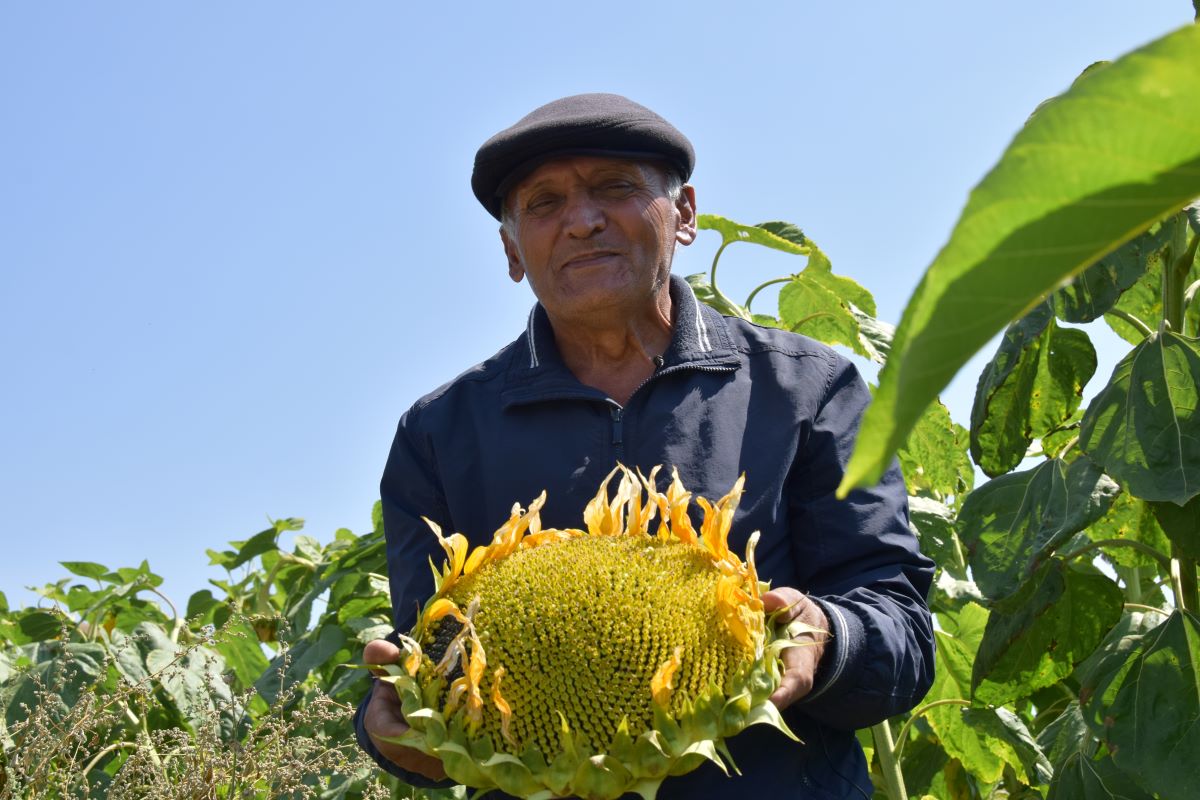Problems of southern Armenia, Syunik region, revealed in personal stories: Part 2
Shepherding in Syunik
The Karabakh war of 2020 and the September 2023 hostilities have changed life in the southern, Syunik, region of Armenia. This is especially true for the economic development of the region, the ability of local residents to earn and support their families.
The situation in Syunik has been aggravated since May 2021, when the armed forces of Azerbaijan invaded the sovereign territory of the Republic of Armenia. The region lost dozens of hectares of land that were used for agriculture. Another part is under the direct aim of the Azerbaijani military. The main occupations of the population here are farming and cattle breeding.
At the same time, many former residents of Nagorno-Karabakh have settled in this area – those who moved here after the war in 2020 and those who were forced to leave their homeland in September 2023. Now they are all trying to overcome the challenges they have faced.
JAMnews presents a series of articles about the residents of Syunik and their problems. This article is about Volodya Arzanian, a resident of Nerkin Hndzoresk.
The first child of the village
The road to Nerkin Hndzoresk is as obscure as the future of the village. The stony narrow road suddenly bifurcates, and you have to decide whether to turn left or right at the fork – there are no signs. All you know for sure is that both sides are Armenian territory, but one of them is now under the control of Azerbaijan.
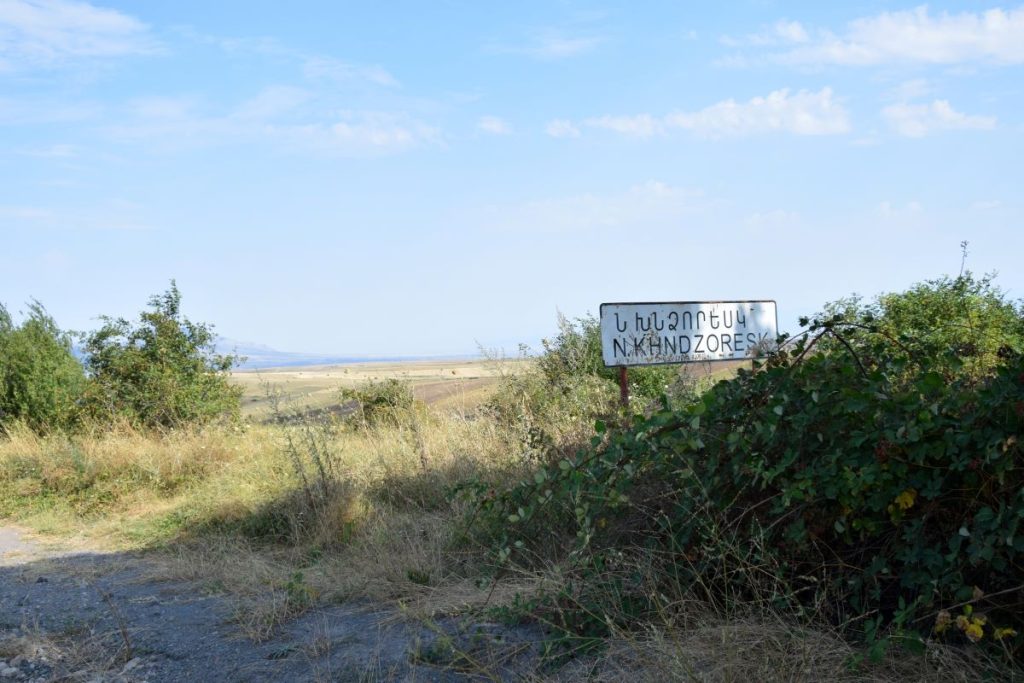
“Are you lost by any chance? Going left is sometimes the right decision,” a middle-aged man smilingly tells me the way.
This is Volodya Arzanyan. His family was the first to settle in the village of Nerkin Khndzoresk, Syunik province, and he was the first child to be born here.
Shepherding in Syunik
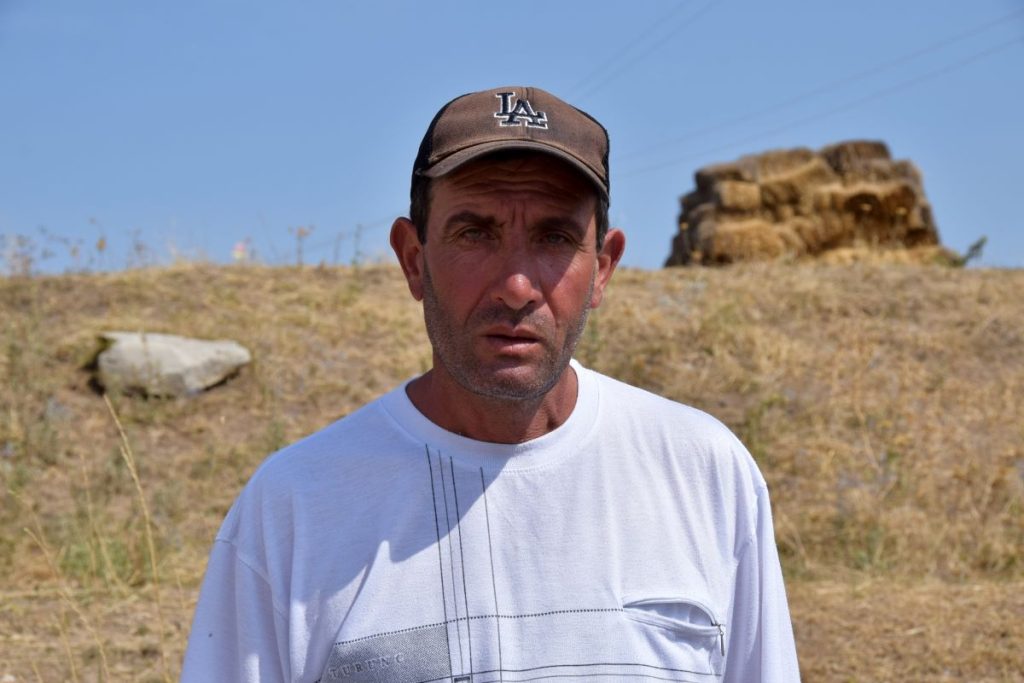
The village was founded in 1985 and has survived two wars. In this small, compact village, surrounded on all four sides by mountains, you can see the border with Azerbaijan.
Shepherding in Syunik
“Sheep herding is now life-threatening.”
Volodya, 48, has been tending sheep since he was five years old. First with his grandfather and now with his sons. Sheep are not just the only source of income for this family, they have a special attitude towards them.
“Do you know how intelligent these animals are? There are no other creatures like them. They are smarter than even some people,” jokes Volodya.
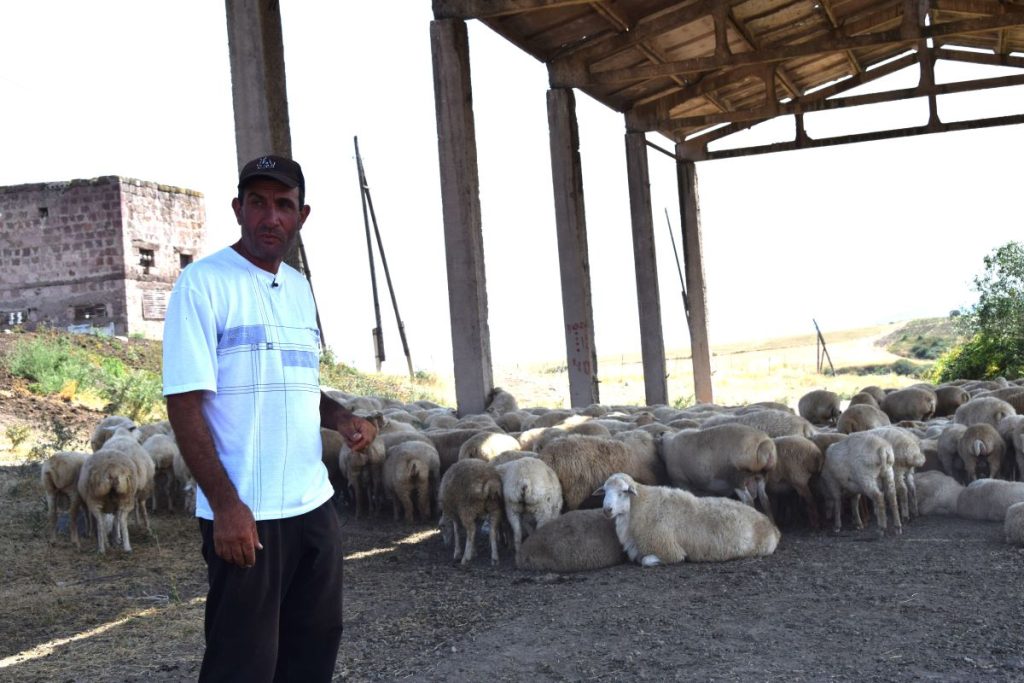
But after a minute his face darkens. He remembers that he used to have 1,500 sheep, but now there are only 370. Due to lack of fodder, some of them fell ill and died, and he sold the rest himself.
In Nerkin Hndzoresk the land for grazing was already small, only 67 hectares. They were covered with bushes, and it was difficult for the animals to get to the grass. But in recent years, the situation has become even more complicated.
On May 12, 2021, the armed forces of Azerbaijan advanced deep into the sovereign territory of Armenia and gained a foothold on important positions in the Syunik region.
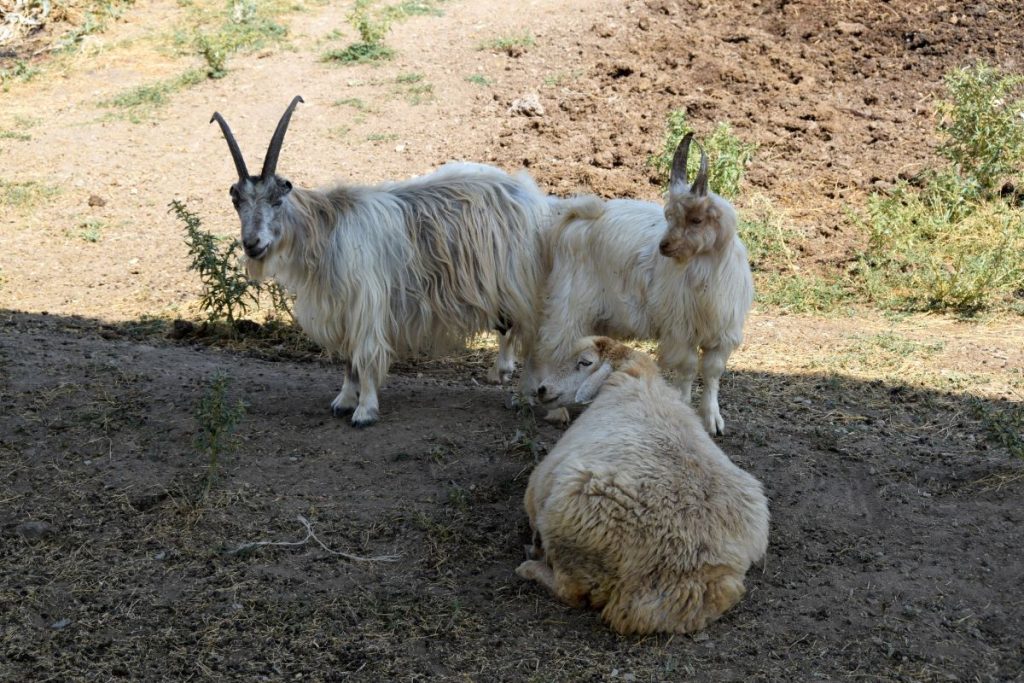
In settlements where cattle breeding and farming were the only way to feed a family, pastures and arable lands were almost completely under Azerbaijani control. Another part found itself in the direct crosshairs of the Azerbaijani military.
“They are very close, right under my nose. Every time I take the animals to pasture, it becomes a matter of life and death. I am afraid to send my sons out to graze alone. They are young, they have a temper. An Azerbaijani shouts from above, swearing. If my sons suddenly retaliate, what will happen then?”, Volodya asks.
Shepherding in Syunik
- The last war in Nagorno-Karabakh: One family’s story
- Spontaneous volunteer movement in Armenia in support of Karabakh Armenians
- With the arrival of Karabakh Armenians, rent in Yerevan rises dramatically
“Now forced to think of other activities”
The lack of land for grazing is not the only problem for Syunik farmers. Volodya says that the Azerbaijani military stole 1,500 sheep from the village. The Armenian compensated those whose livestock was stolen. But the compensation amounted to only half of the real value of the animals. Before the 2020 war, there were 5,000 sheep in the village; now only 600 remain.
“The number of cattle has also decreased. There are families who left only one cow to get milk for their family. Many have not left a cow either.”
He worries about the future of his three sons. They do not want to do anythig else.
“From birth they saw that the family was engaged in sheep farming. They themselves were in the business like their father, grandfather and great-grandfather. But now they are forced to think of other occupations. Like all the young people of the village.”
According to the 2011 census, 276 people lived in the village of Nerkin Hndzoresk, now there are about 150.
People are leaving not only because it has become more difficult to earn money, but also because it is now dangerous to live here. Volodya says that during the war in 2020, a shell hit their yard and exploded. It destroyed the walls of the house and damaged the windows.
“But still our village is trapped, there is no future here,” says Volodya.
If the situation does not change, he is thinking of selling the sheep.
“I could move to the city, open a car wash, work, support my family normally. But I really don’t want that,” Volodya says.
This publication was produced with the financial support of the European Union. Its contents are the sole responsibility of EU4IM’s beneficiary MediaGET/JAMnews and do not necessarily reflect the views of the European Union
Follow us – Twitter | Facebook | Instagram
Shepherding in Syunik










